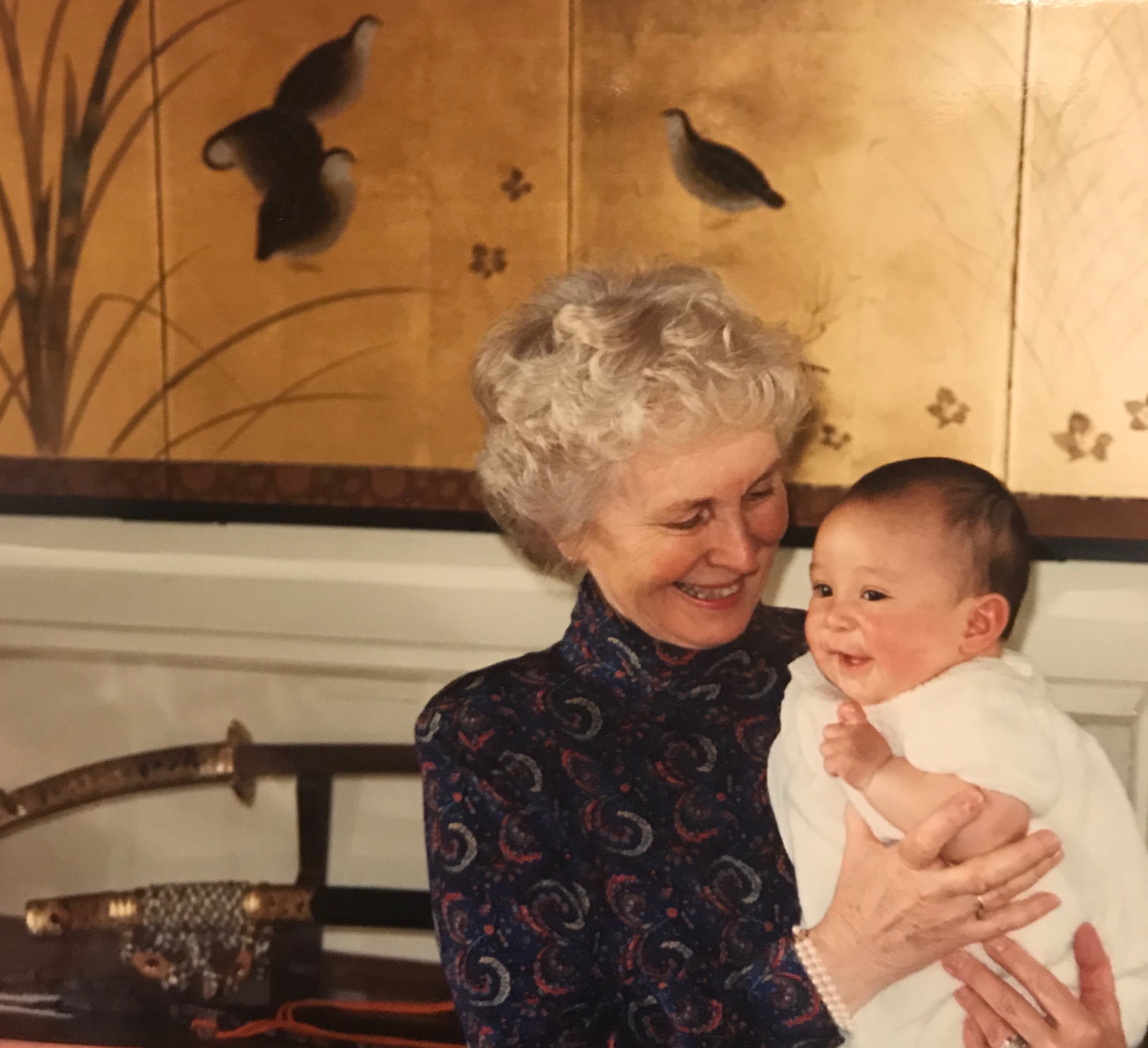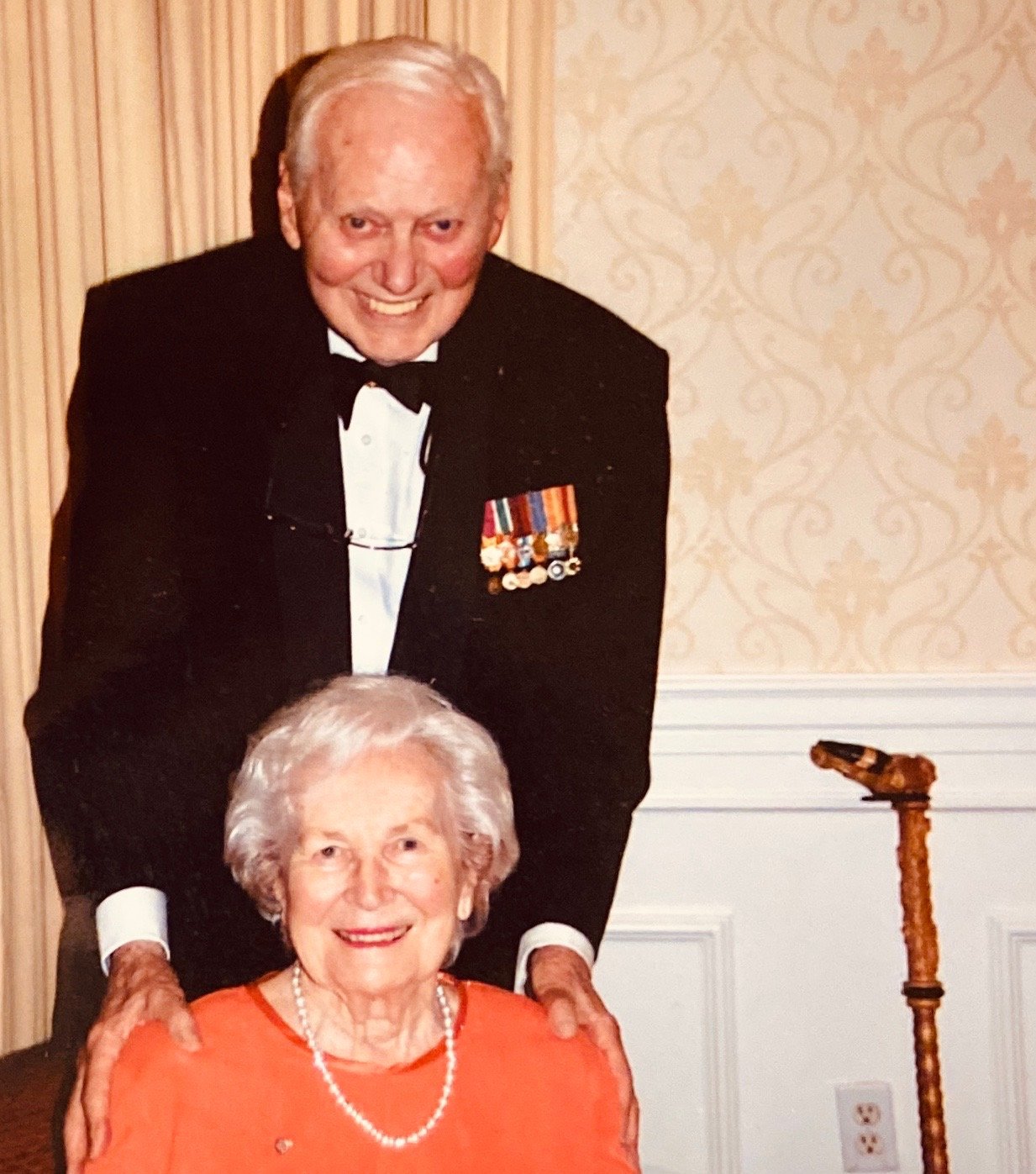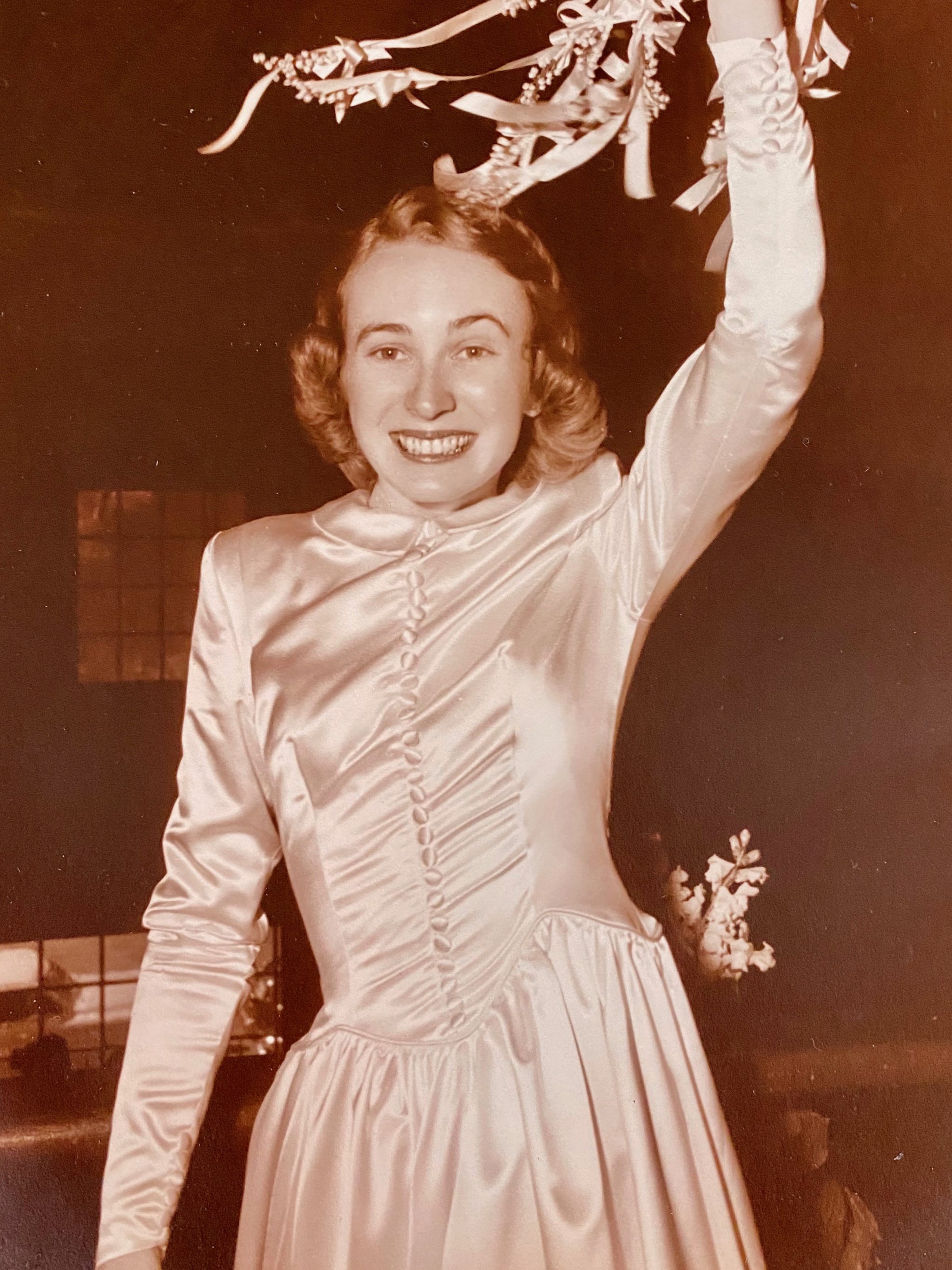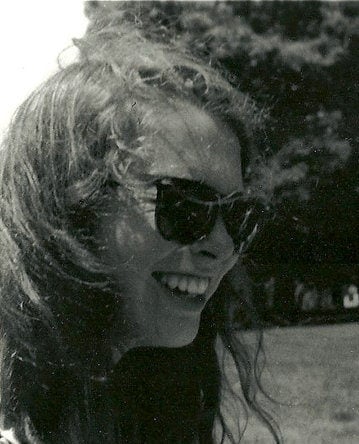About Coronavirus 2020
Washingtonian is keeping you up to date on the coronavirus around DC.
A day after Covid-19 sent my office to work from home, my mother called. My grandfather—94 and living in a Sterling retirement community with my 93-year-old grandmother—had asked a priest to come give Omi her last rites. Alzheimer’s had progressed to the point that my grandmother no longer spoke or left her bed. She mostly slept and had stopped swallowing food. My grandfather, Papa, had decided against a feeding tube, and it was likely she wouldn’t live much longer.
When my mom called, I was sitting on the couch in my apartment half listening, the window open. My mother has an unusual way of crying—it sneaks up on you. She’s quiet for a few seconds past comfortable, then she starts. If you’re on the phone with her, at first you think she’s gasping at something remarkable.
Because of the virus, I doubted I’d be able to visit Omi one last time. But maybe, I reasoned, I could get into the retirement community and sit with Papa in one of the armchairs that used to crowd the living room of my mother’s childhood home. Maybe they’d even let me sneak onto the patch of grass outside Omi’s window, place my hand against the glass, and lean in toward the sleeping, curled seashell of her body tucked neatly into a blanket by someone else’s hands.
I drove out to Sterling from DC with my boyfriend, Tripp. It was a gray day, the roads nearly empty. We’d been watching the news all weekend, and I could feel the pixels from the TV screen settling deep below the bones of my face, my limbs heavy like a sickness.
We pulled up to the retirement community, the black gates closed and almost comically foreboding. A scene from Willy Wonka and the Chocolate Factory sprang to mind, the one that scared me as a kid: Nobody ever goes in, nobody ever comes out. We told the guard why we were there and gave him my grandfather’s name. After a brief phone call, he shook his head: No visitors allowed. Health precautions.
I leaned across Tripp toward the window, the seatbelt running down my chest, right where they’d cut me if I had open-heart surgery. “But my grandmother is going to die,” I said. The guard and I stared at each other for a moment. I felt Tripp stiffen beside me. No one had said “die” yet. It had been alluded to in phone calls with my parents, conversations with my brother. Up till then, she’d only been passing away, had a few more days, was hanging on. But to die—well, that’s what was going to happen, right? In that building behind a row of endless fence, and we would never see her again.
The guard raised his shoulders, embarrassed for both of us. There was nothing he could do.

We stopped in a Food Lion parking lot so I could call Papa and let him know we couldn’t come in. Stoic and rational—ever a Marine—he said he understood.
In the grocery store, the balloons by the floral section hung dumbly from the ceiling—really, who’d buy balloons now? The lines were getting long, people stocking up on beans, toilet paper, frozen food. An old man approached the self-checkout with a container of croissants. I imagined him driving home with the plastic clamshell on the passenger seat, heating up a croissant, and applying a slab of butter across the top. How it would fill his mouth, warm and crisp and vaguely sweet, how he might even eat a second one, the crumbs making a pattern on his shirt. For a moment, everything seemed pointless.
In the cleaning aisle, the shelves were bare. No Lysol, no Clorox wipes, no bleach. I stood in front of the signs boasting now-useless deals (riddle: what is a deal if there’s nothing to buy?), my phone to my ear, and that’s where I finally began to cry. In the cleaning aisle of a Food Lion as shoppers awkwardly navigated around me as if I were something dangerous. I cried for Omi, who was almost dead; for Papa, sitting by himself in a building surrounded by a fence; for my mother, who was about to lose her mother. Crying because I was scared, because all I wanted was to be able to clean my home, to feel safe, and even that couldn’t happen.
Omi loved to knot silk scarves around her shoulders. She loved US history and could tell you the dates of every war and presidential administration. She worked for senators John Warner and William Scott of Virginia and could give you directions to anywhere in DC. One of her toes curled over the other, and when she took her slippers off, my brother and I stared as if at an exploding building. When she was visiting us while I was in middle school, she sent me upstairs to change because she said I was too young to wear black.
She died the morning of March 16 in her small assisted-living room. Besides Papa and the caretaker he paid for, the photos of me and other family, the drugstore flowers and cards, no one was there. It defies logic that my grandparents’ years together—meeting as teenagers in San Francisco; traveling around Europe during Papa’s deployments; exchanging letters through the Korean and Vietnam wars; raising five smart; interesting kids in Washington; a life of adventure and color—would end with the two of them in a sanitized, fluorescent-lit room. A heartbreak acute in precision.
Equally devastating is to think of my grandfather alone for the first time in more than 70 years. He’s always scared me a bit, with his military rigor, his encyclopedic knowledge of politics and history—most of my family has spent years yearning to impress him. Now all I can think of is him padding between his tiny kitchen and living room, his slippers indenting the carpet as the light turns purple outside, a forgotten cup of tea cold beside his chair. To know he’s grieving, confused, lonely, and there’s nothing we can do. We can call, tell him about our lives, articles he should read, shows he should watch. But that’s not really enough, is it?
Then there’s the anger. At the circumstances surrounding my grandmother’s death, at a President who didn’t take this virus seriously enough, at the lack of preparation for such a catastrophe. Most of all, that hundreds, perhaps thousands, of families have experienced or will experience this same cycle of events.

After Omi died, I drove down to my parents’ house in North Carolina to work remotely. It felt safer to get out of the city, but I could also sense the deep loneliness in my mom’s voice whenever I called.
Each morning, I wake up and sit at my childhood desk, turn on my laptop, drink my coffee, and try to pretend everything is normal. Outside is a tree my parents planted when they built our house. It’s probably about 20 years old, its limbs just starting to reach above the roof. One day, I watched a bird land there, its tiny body barely sagging the limb. It had just rained, and fat droplets fell as the bird shook its feathers. For a second, it seemed to be peering in, wondering what someone was doing in this room that normally sat empty and closed. Then, just like that, it took off.
I wondered if Omi might have seen a similar view outside her window, the last she would ever take in. A small bird, perched in stillness, seeming to consider her in one tiny gaze before flying away. Maybe the pane of glass between her and the rest of the world disappeared then, the leaves so close they seemed almost imaginary, almost a mistake. Maybe for a moment, the day seemed made just for her.




















